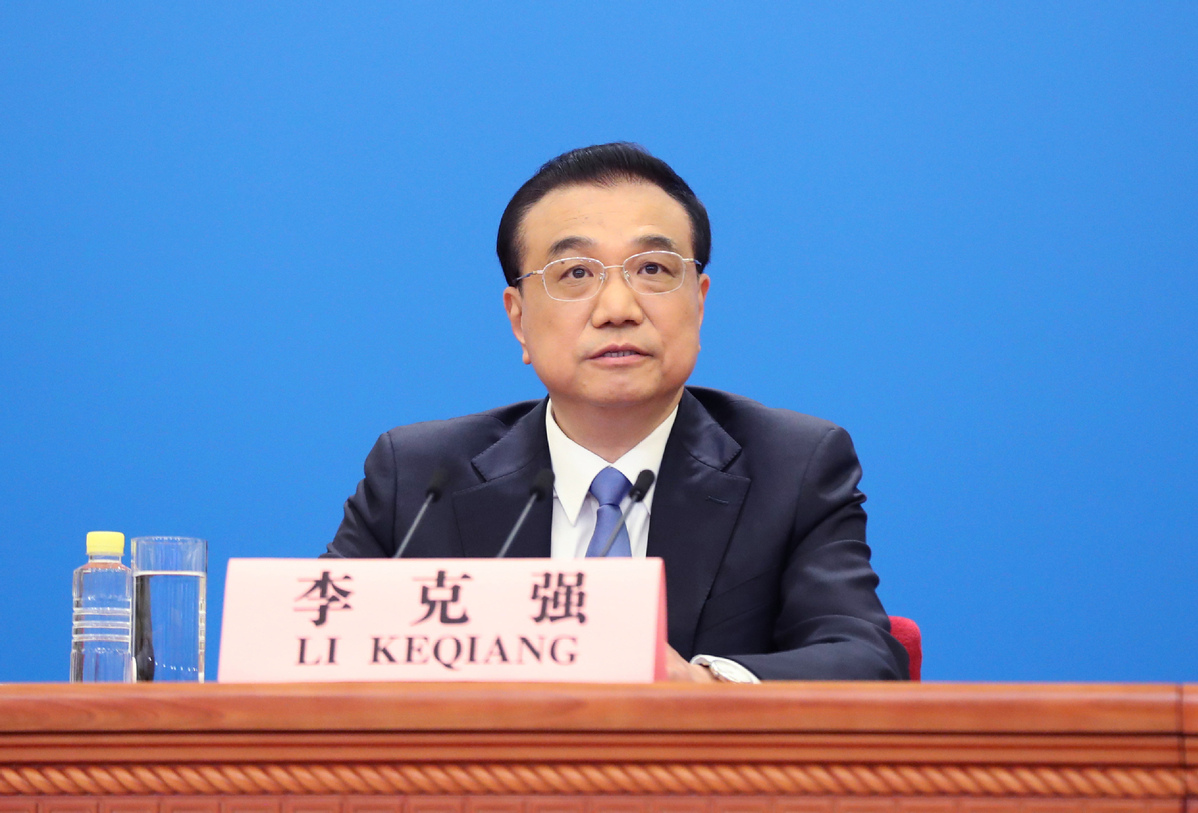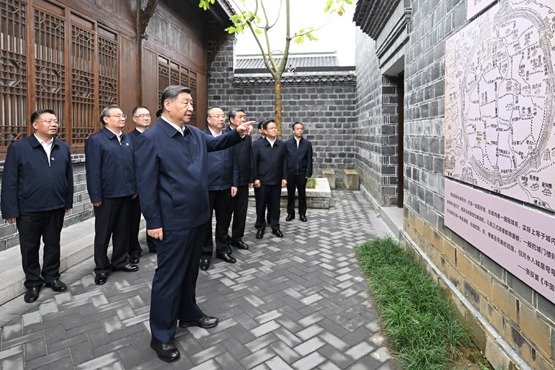Mainland stays open to dialogue on cross-Straits relations


The central government's major principles and policies toward Taiwan have been consistent, adhering to the one-China principle and the 1992 Consensus, and resolutely opposing "Taiwan independence", Premier Li Keqiang said on Thursday.
On this political basis, the mainland is ready to engage in dialogue and consultation with any political party, group or individual in Taiwan on cross-Straits relations and the future of the nation, Li said.
"We are willing to promote peaceful development across the Straits and peaceful reunification of the motherland with the utmost sincerity," he said while answering a question about Taiwan during a news conference after the closing of the third session of the 13th National People's Congress in Beijing.
The Taiwan question is China's internal affair, Li said, adding that "We have always opposed outside interference. The Chinese nation has the wisdom and ability to handle its own affairs well."
The premier said the mainland regards Taiwan compatriots as "brothers and sisters" and has always attached great importance to their well-being.
Since the outbreak of COVID-19, no Taiwan compatriots have lost their lives on the mainland as a result of the novel coronavirus, he said.
In the Government Work Report presented at this year's two sessions, Li said the mainland will improve institutional arrangements, policies and measures to encourage exchanges and cooperation between the two sides, to further cross-Straits integrated development.
The mainland will also encourage Taiwan compatriots to join in opposing "Taiwan independence" and promoting China's reunification, according to the report.
Tsai Ing-wen, the leader of Taiwan's ruling Democratic Progressive Party, refused to recognize the one-China principle as she started her second term as Taiwan leader last week.
Jiang Erxiong, vice-chairwoman of the All-China Federation of Taiwan Compatriots and a member of the 13th National Committee of the Chinese People's Political Consultative Conference, the country's top political advisory body, said the DPP authorities' refusal to recognize the one-China principle unilaterally undermines the political foundation for peaceful development across the Straits.
The DPP has been creating cross-Straits antagonism, obstructing exchanges and cooperation, and linking up with outside forces to seek "independence", she said."For political gain, they would not hesitate to harm the interests and well-being of Taiwan compatriots."
"'Taiwan independence' is against history and will lead to a dead end. We should unite compatriots on both sides and work together to realize the great cause of national reunification," said Jiang, whose hometown is in Taiwan.
Liao Haiying, another CPPCC National Committee member whose hometown is also in Taiwan, said cross-Straits exchanges are now at a relatively low ebb due to obstruction by the DPP administration.
But a greater number of younger Taiwan compatriots are coming to the mainland for study or work, which shows that they think it is a promising place, Jiang said, adding that many measures have been introduced to provide equal treatment for Taiwan compatriots living on the mainland.
Cai Peihui, a deputy from the Taiwan delegation to the NPC, said these measures are really beneficial to people and businesses from Taiwan on the mainland.
Compared with the stable environment and potential market of the mainland, political turmoil in Taiwan is very frequent, which has had adverse effects on the economy and people's livelihoods, he said.
Cai often gives advice to entrepreneurs from Taiwan who want to invest or start a business on the mainland. "I hope they can come to the mainland to see the development and changes here," he said.
- China's free HPV vaccination accessible to 40% girls of eligible age
- Chinese premier chairs State Council executive meeting
- Xinjiang students get up close look at drone technology
- Central govt kicks off new batch of third round of environmental inspections
- Altay, Xinjiang Uygur autonomous region
- The Balikun Grasslands




































